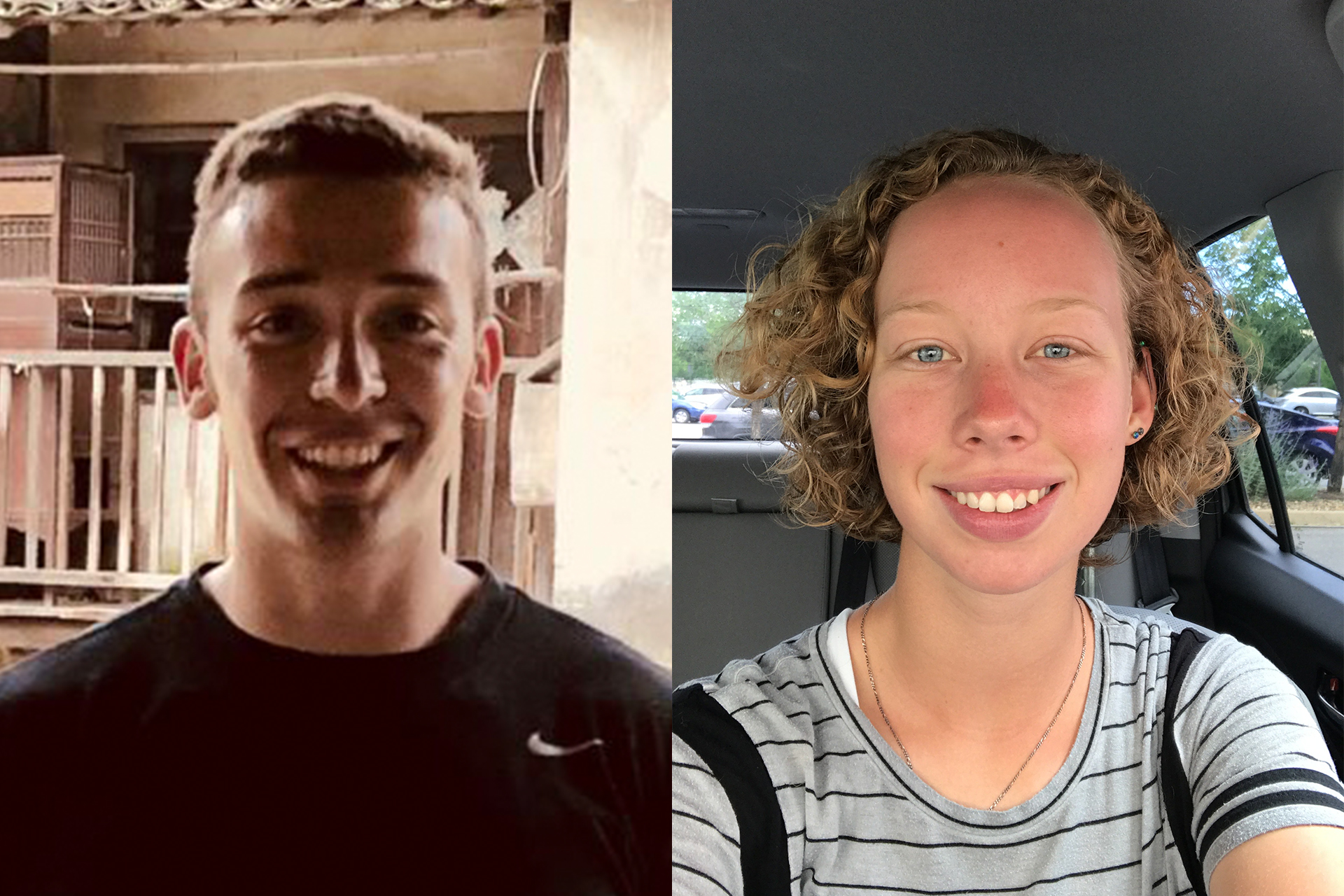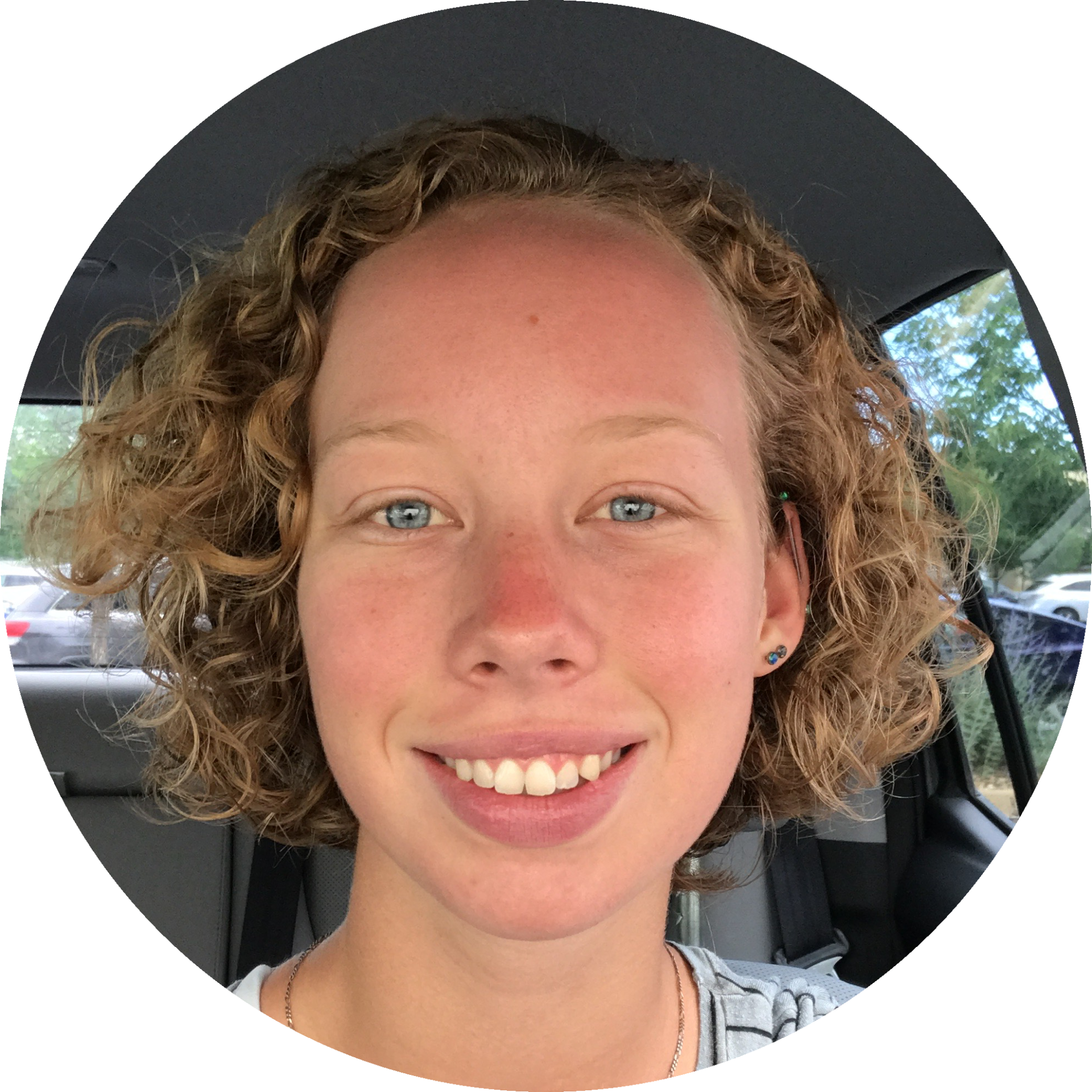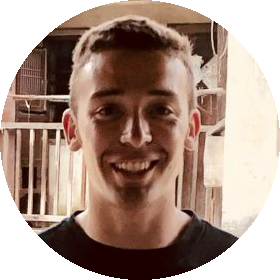
Sydney Spiegel (left) and Caroline Dunphy are recipients of 2020 Boren Scholarships.
Two Colorado State University undergraduates are the recipients of David L. Boren Scholarships from the National Security Education Program, a federal initiative designed to help students interested in national security and linguistics.
Caroline Dunphy, a sophomore in the College of Liberal Arts, and Sydney Spiegel, a junior in the Walter Scott, Jr. College of Engineering, each received the honor, which provides funding to study abroad to acquire language skills and international experience.
Given the COVID-19 pandemic, the Institute of International Education, which administers the scholarship program, said in a release that it will “work flexibly with 2020 awardees to ensure that as many as possible are able to proceed with their overseas language study when it is safe and feasible to do so.”
Dunphy received the scholarship to study Japanese in Japan, and Spiegel plans to study Mandarin in China. The two follow past CSU students Paine Lewis in 2019 and Carl Kasten in 2015 as Boren Award recipients.
“We are thrilled for Caroline and Sydney,” said Mary Swanson, program director of the Office for Scholarship and Fellowship Advising. “Both have worked extremely hard to develop the expertise and language skills they needed to be awarded a Boren Scholarship. This is a well-deserved honor, and we are confident they will represent both CSU and the United States well.”

Caroline Dunphy
Destination: Japan to study Japanese
College: College of Liberal Arts
Major: Anthropology and International Affairs
Caroline Dunphy’s interest in Japanese language and culture started when she was in middle school on her first visit to the country.
With a deep passion for anthropology and international affairs, Dunphy wants to apply her liberal arts background to conservation — in particular the increasingly precarious state of marine biological resources in the country.
With Japan reintroducing commercial whaling in 2019, Dunphy is interested in learning more about the impact of whales on the marine carbon cycle — as whale excrement works as a fertilizer that stimulates phytoplankton to photosynthesize, taking up carbon in the process.
“I was really surprised to be named a Boren Scholar,” said Dunphy, who is from Fort Collins. “The fact that the government thinks I can bring my anthropology background and my language skills to a job is kind of cool. It’s a little validating.”
If all goes to plan, Dunphy will study at Kwansei Gakuin University in Nishinomiya, Japan, located off the Pacific coast.
While there’s uncertainty because of the COVID-19 pandemic, Dunphy said she understands that the National Security Education Program is doing its best under the circumstances.
Either way, Dunphy feels her anthropological background offers a unique perspective to marine conservation, something she hopes to continue one day for the National Oceanic and Atmospheric Administration.
“Bringing an anthropological perspective to marine conservation and intergovernmental work could provide useful insight and help craft policies that are not only effective on paper but likely to be implemented to the fullest by the Japanese government and local communities,” she said.

Sydney Spiegel
Destination: China to study Mandarin
College: Walter Scott, Jr. College of Engineering
Major: Mechanical Engineering
Sydney Spiegel’s career interests meet at the intersection of cross-cultural collaboration and technology.
With artificial intelligence and 5G information networks on the horizon, Spiegel sees these technologies as similar to how the advent of electricity powered the growth of the United States in the late 19th and early 20th centuries.
As China is the largest U.S. competitor in these booming technologies, Spiegel has committed to better understanding Chinese perspectives. Spiegel hopes that the Boren Scholarship will facilitate a better understanding of Mandarin and Chinese culture so that he can pursue a career as an engineer and also serve as a bridge of communication between international teams.
“Receiving the Boren Award is significant to me,” said Spiegel, who’s from Fort Collins. “This feels like the culmination of all of my hard work.”
If all goes according to plan, Spiegel will study for a year at Yunnan Normal University and intern for a Chinese engineering company in Kunming — the capital city of Yunnan province, which is located in southern China.
This isn’t Spiegel’s first trip to China. In the summer of 2018, Sydney received a Gilman Scholarship to study at Peking University in Beijing, China. He spent the following summer in Suzhou, Jiangsu, at Soochow University as part of the Critical Language Scholarship program, sponsored by the U.S. State Department.
At CSU, Spiegel has earned a minor in Chinese Language and is working toward his bachelor’s in mechanical engineering. He has spent the last year applying his engineering and language skills at CSU’s Powerhouse Campus, working with a multinational team in the Adaptive Robotics Laboratory, directed by Jianguo Zhao.
As for the uncertainty surrounding the COVID-19 pandemic, Spiegel is taking it in stride, focusing on the positives. Working and studying from home has allowed him to be more productive, he said.
“Spending a year in China will be challenging,” he said, “but I am excited for the opportunities that will stem from this experience.”
About the Boren Awards
Since 1994, more than 7,000 students have received Boren Awards in the highly competitive program, representing an important pool of individuals wishing to work in the federal national security area. Many alumni go on to contribute to critical missions throughout the federal government.
“To continue to play a leadership role in the world, it is vital that America’s future leaders have a deep understanding of the rest of the world,” said former U.S. Sen. David Boren, the principal author of the legislation that created the National Security Education Program, in a news release. “As we seek to lead through partnerships, understanding of other cultures and languages is absolutely essential.”
Current CSU undergraduate and graduate students interested in applying can contact Mary Swanson at mary.swanson@colostate.edu.